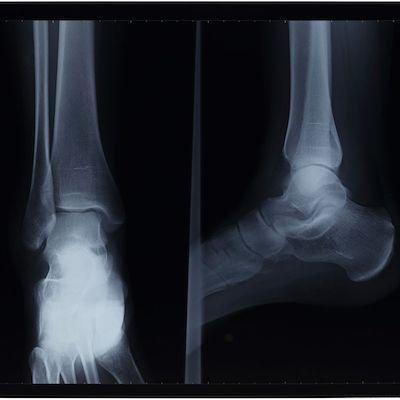
Many people are skilled at ignoring or pushing through foot pain - especially runners and other athletes. Unfortunately, they’re the ones who need their feet looked after most since their repeated motions can quickly lead to serious injuries! One of those issues that we see here at Tipton & Unroe Foot & Ankle Care is stress fractures.
Learning about the signs of a stress fracture can help you notice any issues and prevent the problem from worsening. Read on to see what some of those signs are!
What is a stress fracture?
Stress fractures start as tiny, hairline cracks in the bone. They can be quite painful or just a minor annoyance. Continuing to run or be active in sports can turn a stress fracture into a full fracture, which could come with months of recovery!
Stress fractures most typically occur on the heel bones of the metatarsals, the bones that connect the toes to the foot. Stress fractures in the feet are typically caused by overuse or repetitive action, which is why our podiatrists see them most often in runners or athletes!
What are risk factors for stress fractures?
Stress fractures are more likely to occur in some people's feet than others’. Here are some of the common risk factors:
Lacking vitamin D
Lacking calcium
Playing high-impact sports, like basketball
Being female, especially if your body mass index is low
Increasing the intensity of your physical activity rapidly
Having flat feet or high arches
Sustaining previous stress fractures (especially if left untreated)
Wearing worn-out shoes.
Our podiatrists can help determine if any of these issues apply to you or make you more at risk for developing a stress fracture.
What are the signs of stress fractures?
Pain is the number-one most significant sign of a stress fracture. Typically, pain worsens over time or if you continue to partake in vigorous activities. The area might also swell directly after activity.
Other signs include:
Persistent pain despite regular rest and icing
Pain that worsens at night
Weakness and loss of performance
How does a podiatrist treat a stress fracture?
Pain management is the best treatment for stress fractures. Catching it early is key, as it can help to stop a hairline crack from becoming a more significant one. To ensure proper treatment, a foot care specialist will likely order X-rays or an MRI to confirm that it is a stress fracture causing the pain. Typically, staying off your foot for 6–8 weeks will allow your bones to heal. Ice therapy and medication may also be recommended to reduce inflammation. Once the pain has subsided, your foot doctor will usually give you the OK to restart your activities. In some extreme cases, a stress fracture may require surgery.
Whether you suspect a fracture or you have foot pain that comes and goes, it’s important to seek out treatment from foot care specialists! At Tipton & Unroe Foot & Ankle Care, our team of dedicated foot doctors are here to help you with all of your foot and ankle needs. From injuries and chronic pain, to toenail issues and senior foot care, a wide range of podiatric services are available to you.
To schedule an appointment at any of our offices in Louisville, La Grange, and Bardstown, contact us!
